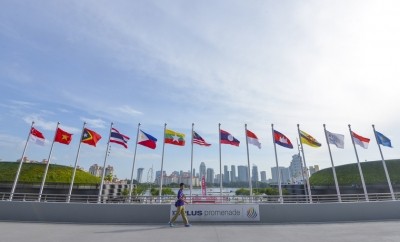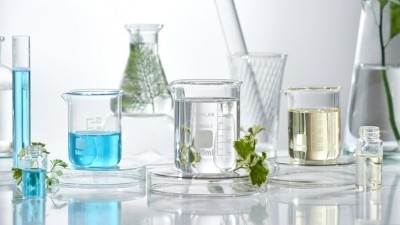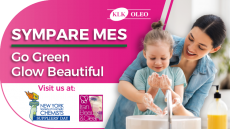‘Time for cosmethics’: Why ISO standards are crucial for organic and natural transparency – CTFAS president

Today’s consumers are faced with many choices in the market, with estimates that there are currently over 130,000 cosmetic products in Singapore alone.
While there is increasing interest in natural and organic cosmetics, there is also plenty of misinformation and confusion among consumers.
In this landscape, Dr Alain Khaiat, president of the Cosmetic, Toiletry & Fragrance Association of Singapore (CTFAS), stressed the importance of an ethical approach to cosmetics
“I coined the word ‘cosmethics’ around the late 80s. For me, this is the most important thing. Companies have to be ethical in what they do. They must be fully responsible for their products. That means the product must be safe and it must bring consumers a benefit that the company can support,” he said.
Khaiat lamented the amount of products on shelves that that claimed to be natural or organic despite having a low concentration of natural ingredients.
“What we would like companies to do is specify the percentage of natural or organic ingredients in the product and an ISO standard will help with that,” he said.
ISO 16128 is a two-part guideline that was released between 2016 and 2017. The first provides definitions for natural and organic cosmetic ingredients while the second describes approaches to calculate the organic indices of those ingredients.
This ISO standard is among several of the topics that will be discussed during the next CTFAS workshop on cosmetic regulation, which will take place October 14.
Advantages of ISO 16128
While the standard has been globally available for over a year now, Dr Alain Khaiat said it is not yet widespread in this part of the world.
“I’ve seen quite a few suppliers starting to use it but we have to make the companies and regulators aware of it so that we can control companies making unjustified claims,” said Khaiat.
He explained that ISO 16128 gives industry players a simple way to determine the percentage of products natural or organic components. At the same time, it makes it easier for regulators to determine the validity of claims and empowers consumers to make an informed choice about products.
By implementing to ISO 16128, the industry and consumers can achieve clarity and transparency as well as put an end to ‘greenwashing’, said Khaiat.
“Today, I don’t know any product that doesn’t contain plant extracts; it’s become the norm. But the fact that a product contains a plant extract does not mean its 100% natural. This is where we want companies to be more transparent… Using the same definitions gives consumers the assurance that one company is not inventing a standard to give itself an advantage over another,” he said.
Adapting to new regulations
In addition, the CTFAS regulation workshop will also be focusing on ASEAN country-specific regulations and the new regulations in China which may be published at the end of this month.
The event will give companies the opportunity to learn how they can adapt to these changes which are far from straightforward.
For instance, the new Chinese regulations pose more than a few obstacles for industry players.
Khaiat said: “A number of requirements that are going to make things much easier for companies to get products into the market. However, we have to be very careful about how the regulators are going to implement some of the articles.
“For example, there is a requirement for GMP-compliant, which is fine but you will need a certificate of compliance by the health authorities. That's where the problem is because health authorities in the US or Europe, for instance, do not do this.”
This is especially significant because being GMP-complaint is a prerequisite for companies that wish to bypass the animal testing requirements.
Khaiat said the industry associations were working to approach the FDA to find alternative solutions.









![Indus Valley is working to corner 30% of India's online premium boxed hair colour market. [Indus Valley]](/var/wrbm_gb_food_pharma/storage/images/_aliases/wrbm_tiny/publications/cosmetics/cosmeticsdesign-asia.com/article/2024/07/26/indus-valley-aims-to-secure-30-of-india-s-online-premium-hair-colour-market-with-organic-offerings/17594932-5-eng-GB/Indus-Valley-aims-to-secure-30-of-India-s-online-premium-hair-colour-market-with-organic-offerings.jpg)
![[Getty Images]](/var/wrbm_gb_food_pharma/storage/images/_aliases/wrbm_tiny/publications/cosmetics/cosmeticsdesign-asia.com/china/china-focus-latest-developments-in-china-s-booming-beauty-market25/17606695-1-eng-GB/China-focus-Latest-developments-in-China-s-booming-beauty-market.jpg)
![Kosé has launched makeup brand Visée in Singapore as part of plans to reinforce its position in SEA. [Visée]](/var/wrbm_gb_food_pharma/storage/images/_aliases/wrbm_tiny/publications/cosmetics/cosmeticsdesign-asia.com/headlines/business-financial/visee-singapore-kose-aims-to-enhance-brand-visibility-in-sea-with-new-launch/17587264-1-eng-GB/Visee-Singapore-Kose-aims-to-enhance-brand-visibility-in-SEA-with-new-launch.jpg)
![ble C&C is set on reinforcing its competitiveness in China’s beauty market. [Missha]](/var/wrbm_gb_food_pharma/storage/images/_aliases/wrbm_tiny/publications/cosmetics/cosmeticsdesign-asia.com/headlines/business-financial/able-c-c-aims-to-strengthen-competitiveness-in-china-through-online-expansion-kol-collabs/17591626-1-eng-GB/Able-C-C-aims-to-strengthen-competitiveness-in-China-through-online-expansion-KOL-collabs.jpg)

![LG H&H genetic study says 23 genetic regions affect natural skin tone. [Getty Images]](/var/wrbm_gb_food_pharma/storage/images/_aliases/wrbm_tiny/publications/cosmetics/cosmeticsdesign-asia.com/article/2024/07/23/lg-h-h-discovery-of-genetic-skin-tone-factors-in-east-asians-potentially-key-to-skin-radiance-developments/17587210-1-eng-GB/LG-H-H-discovery-of-genetic-skin-tone-factors-in-East-Asians-potentially-key-to-skin-radiance-developments.jpg)

![DR.CI:LABO expects brand-supplier partnerships gain more public prominence as consumers interest in skin care grows online. [Dr.Ci:Labo]](/var/wrbm_gb_food_pharma/storage/images/_aliases/wrbm_tiny/publications/cosmetics/cosmeticsdesign-asia.com/article/2024/07/22/brand-supplier-partnerships-will-come-to-the-fore-amid-the-online-skin-care-landscape-dr.ci-labo/17576755-1-eng-GB/Brand-supplier-partnerships-will-come-to-the-fore-amid-the-online-skin-care-landscape-DR.CI-LABO.png)


